Terraform Training
Program Overview
Your path to infrastructure automation expertise begins with our Terraform training program. Intended to satisfy the ever-changing needs of the technology sector, the Terraform course encompasses essential ideas and practical abilities in utilizing strong instruments for infrastructure as code. You’ll gain knowledge on how to effectively build, run, and expand infrastructure. With us, you can get ready for a career where you can acquire limitless, in-demand experience in infrastructure automation with the Terraform certification course offered by us.
Key Features of Terraform Training
- Ideal for freshers as well as intermediates
- Guidance and quality support to build your resume
- Live training by experts for 3 Weeks
- In-depth job interview preparation
- One live projects to enrich practical knowledge
- A comprehensive explanation of projects
Program Curriculum
Pre-Requisites: This is a 1-week training session that mainly provides insight into the basics of DevOps. The classes are divided into 2 hours for each day. The DevOps Master program consists of 4 modules;
Day 1:
- Instructions on creation an AWS account
- Create Linux Machine on AWS
- Login to AWS Machine from local machine
- Importance of linux commands?
- Linux File Systems
- Basic commands that refers files and folder
- How we can learn the linux commands
Day 2:
- Add the users and groups in Linux Machine
- Change Ownership of file/directory
- Change Group ownership of file/directory
- File Permission in linux
Day 3:
- Global AWS Infrastructure
- Home Network Concept
- Networking Concept – Private and Public IP
- NAT
- VPC
- Private IP Range
- Create VPC
- Create Subnets
- Create EC2 machine in custom VPC
- Create the Internet Gateway and attach it to VPC
Day 4:
- Add public internet route entry inside main route route table
- Making private subnet and public subnet (with RT)
- Launch EC2 in private subnet
- Login to private EC2 through bastion host/jump server
- Create the NAT GW for private instance to access internet
- SSH Private and public Key
- Security Group
- Elastic IP
Day 5:
- Microservices Overview
- Difference between Monolithic and Microservices app
- Overview Build Tools npm, maven, pip
- Build the application using build tools
Day 6:
- What is docker?
- Docker Overview
- Installation of docker on ubuntu
- Run the wordpress container
- Port forwarding in docker
- Docker commands
- Docker Build
- Docker push to docker hub repo
- What is an infrastructure?
- Some history about infrastructure
- Why IAC is important ?
- Installation of Terraform
- Creation of admin user in AWS with IAM
- Authentication for AWS
- How Terraform works ?
- Provision an ec2 machine in AWS using terraform
- Change your ec2 machine settings using Terraform
- Terraform to delete the ec2 instance
- Terraform Syntax
- Providers and Resources
- Creating an EIP and associate it with instance on aws using Terraform – one resource refers others
- How Terraform get the state
- Infrastructure Overview
- Create a VPC
- Create Subnets
- Creating ec2 instances under one of those subnets
- Created key pair
- Apply the aws_instance resources
- Enable Public IP as the default subnet settings
- Open the port 80 and port 22 in the security group
- Associate your EC2 instances with the security group
- Create an internet gateway and attach to the VPC
- Routing table to enable communication with internet
- Associate the Routing Table with the subnets
- Ensure connectivity and ssh access on the webservers
- Setting up Apache webserver on the ec2 instance
- Create AMI through AWS console
- Launch the EC2 instance with new AMI
- Create the load balancer manuallly
- Create a target Group and Attach the machines
- Create a Load Balancer and Listener
- Best practises to create EC2 server
- User data
- Launch Template
- ASG Theory
- Launch Template Demo
- Auto scaling group Theory
- Auto scaling group Demo
- Remote state management with Backend
- Variables in Terraform
- Project
This Course Includes
- Eligibility: Fresher to less than 4 Years Experience
- 3 Weeks of LIVE training + 1 Week LIVE Project
- Self paced videos available
- 5 LIVE Projects
- Interview Preparation
- Resume Building
- Project Explanation
- LIVE Session will get recorded & Shared
- Support via Email & Slack
Corporate Training
Corporate Training has become an essential part that constitutes the work culture. While most training is conducted for soft skills, a DevOps Master Program will provide an all rounded development. This DevOps course is highly beneficial for freshers taking their first step in the corporate world. With streamlined and accessible training modules, this DevOps training will zoom through maximum topics essential to get going with DevOps.
Skills You'll Acquire:
Linux
CI/CD Pipelines
Infrastructure Code
Configuration management
Cloud computing
Container orchestration
Tools You'll Learn:





Why Choose Mindbox
Career Services
Interview preparation
We prepare you thoroughly for a successful interview
Portfolio building
We help you build a strong portfolio with LIVE project work during the DevOps certification program
Mock test
We provide mock test to prepare you for real world DevOps challenges and projects
Project explanation
Our team of experts explains you each aspect as the DevOps course progresses.
Our Expert Trainers
- Our team of trainers carries more than 10 years of expertise and experience in the Agile industry.
- Also, they have become masters in Cloud Foundation. Each of our experts possesses certificates in DevOps, CI/CD pipelines, Jenkins, Ansible, Docker, and Kubernetes.
- We have a team of well-qualified DevOps professionals who can effectively impart their knowledge.
- So, whether you lack technical knowledge or know the basics, you can be sure of learning the best of cloud engineering from our panel of DevOps experts.
- Although the DevOps training program encompasses all the components to help anyone become one of the best DevOps cloud engineers, the likelihood is lower without the right personnel.
Our Project Work

Overview
Home Ecommerce app is a cutting-edge project built on a foundation of micro services in DevOps certification. This application platform helps students to understand how to deploy applications. The deployment is done on the Kubernetes platform. All the images have to be built using the docker tool.
Tools
Docker, Kubernetes, Kubectl, AWS CLI, Docker Hub Registry are used in DevOps course
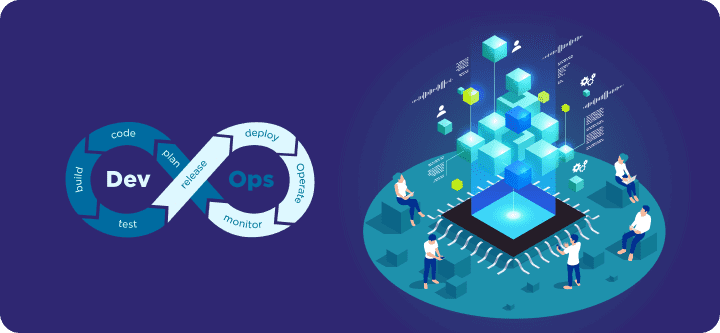
Overview
Spring Petclinic Project is a micro-service-based application that we will use to learn how to build the application, how to deploy it using the best practices around CI/CD, and how to automate configuration using Ansible
Tools
Jenkins, Git Github, Nexus, Ansible, AWS EC2, Docker
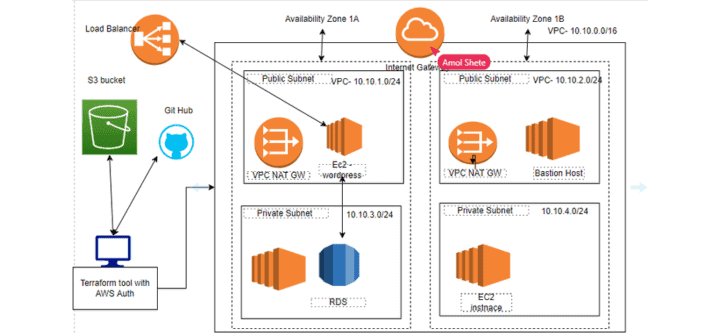
Overview
We will create the available best practices infrastructure using the Terraform tool. This project will give an idea of how the cloud infrastructure needs to be created in the real world, and how to maintain it for big enterprise organisations.
Tools
Terraform, AWS CLI, AWS services such as EC2, Auto Scaling Group, Load Balancer, VPC, Subnets, Bash scripting, Network related services
Who May Apply to this program?
- Anyone who has Blow 4 Years of IT experience Irrespective of the technology.
- Freshers who dont have any IT experience also can apply for the course.
- Any Non-Coding background can also apply for this course
Industry Trends
Annual Salary
An average of 7 LPA
Companies Hiring
TCS, IBM, Accenture, Cognizant, HCL, Oracle, Capgimini
Demand
The current demand is expected to triple and quadruple in the coming decade
Market Growth
The sector is expected to register a CAGR of 24.2% from 2021 to 2030.
Market value
The global DevOps market size was valued at $6.78 billion in 2020, and is projected to reach $57.90 billion by 2030
Job Growth
Jobs are expected to grow 15 percent between 2021 and 2031
Reviews
I took AWS DevOps training at Mindbox. The trainer was so great in training us. He has 10+ years of experience so he explained a lot of real-time scenarios. We used to have projects every week. We got a chance to do a project together and present and explain the project. It helped everyone in the class. Overall totally worth training. For AWS and DevOps, this is the best Institute with a decent cost as well. Good luck everyone!!
Padmapriya Vijayakumar
Students
The great course format, As the name suggests is really Advanced DevOps training. The syllabus is properly designed considering cloud service providers like AWS, and Google. A trainer is a knowledgeable person about AWS, Google clouds & its association with DevOps. Also, we have received AWS Solution Architect self-paced training which is very helpful to get the proper understanding of Cloud features. You can go for this training without any second thought. Mindbox is providing recordings of the Live sessions which is very helpful for future reference.
Prasanth Dalvi
Students
The training was really nice. Things were explained thoroughly and even a person without knowing the complete basics could catch up easily with the way the things were explained. I will give a rating of five stars and can assure you that this is one of the best training I ever had. Thank you Mindbox for the continued support.
Aparna Panicker
Students
It’s a great platform to learn and implement your knowledge in your day-to-day life tasks. It’s simply awesome and full of knowledge.
Suryakant Samal
Students
Great place to learn Kubernetes, and the trainer is very knowledgeable. This course really helped me to change my profile to DevOps. I would recommend this institute to everyone who is interested to move their career to DevOps and SRE roles.
Vinay Krishna
Students
Mindbox training institute is simply great … Just completed a DevOps course, teaching was excellent.
Santosh Patra
Students
Inquired about many training inst for DevOps training. Finally, chosen mindbox The trainer is the best in the explanation part of every tool. The live projects have helped me to understand the real-time environment. He covered AWS & DevOps with all prerequisites. I thank the management of mind box for creating this kind of program with top-notch trainers.
Raj Kalam
Students
I came to know about Mind box from YouTube videos, Initially, I was really skeptical about online training. Now I feel I made the right choice choosing Mind box. The instructor is very detail oriented and the support for questions is really quick. This is the best online training I got so far. I got everything that I was looking for and was very happy about it.
Krishnaveni Valluru
Students
Got the knowledge on most of the concepts which are industry is seeking from the DevOps professionals.
Ravi Dasoju
Students
Great Instructor, Topics are covered in detail and in a very professional manner. The way the training is done is top-notch. The queries are answered very clearly. One of the best online training institutes. I would strongly recommend Mindbox training institute. Great support from the staff and the trainer.
Naveen D
Students
The training is completely practical oriented and it feels like we are working in a real-time environment. The way of teaching is excellent. The guidance is really great.
Dinesh
Students
Training has been great, he has got lots of experience and explains the topic in a great way, projects that mindbox provides are good. Support from Mindbox has been outstanding he will respond in moments over WhatsApp or over call which is really great as most of the institutes won’t respond once payment is made but Mindbox is really different from them.
Gowtham Sai Charan
Students
FAQ'S
If anyone wants to start his career in the IT industry and possesses knowledge about DevOps operations, he should learn DevOps to boost his career. Usually, developers, system admins, or security specialists should learn DevOps to enhance part of their careers.
HashiCorp’s Terraform is an open-source infrastructure as code (IaC) tool that automates cloud resource provisioning and management, assuring infrastructure consistency and scalability.
The Terraform Training programme consists of four modules, each consisting of two weeks of training and one week of project work.
You will have access to email and Slack support from terraform specialists around the clock.
During the terraform course project week, there is an interview session where you can ask any concerns you have about your LIVE projects and receive expert advice.
The entire Terraform Training programme is founded solely on practical application and provides consistent support and direction from industry experts for real-world industry experience.
Jenkins is a continuous integration and continuous delivery (CI/CD) automation server for developing, testing, and deploying software, whereas Terraform is an infrastructure as code utility for provisioning cloud resources. In the software development and operations processes, they serve distinct functions.
Yes, DevOps engineers frequently use Terraform as a key infrastructure provisioning and administration tool, which enables automation, scalability, and consistency in their operations.
DevOps relies heavily on Terraform to automate infrastructure provisioning and management. It ensures consistency, scalability, and collaboration, thereby facilitating the efficient delivery and operation of software.
Terraform provides Infrastructure as Code, multi-cloud support, automation, consistency, collaboration, scalability, cost-effectiveness, state management, and modularity for streamlined and effective infrastructure provisioning in DevOps.
The average compensation for a Terraform developer in India is 9,16,000.
Terraform expertise is advantageous for DevOps positions, but it is frequently only one component. Employability is enhanced by skills such as scripting, cloud expertise, and CI/CD.
Terraform continues to be an essential skill for DevOps and cloud infrastructure administration, and there is a growing demand for Terraform-savvy professionals.
Each of our specialists holds DevOps, CI/CD pipelines, Jenkins, Ansible, Docker, and Kubernetes certifications. Our council of DevOps experts will teach you the best practises of cloud engineering, regardless of your level of technical expertise.
The Terraform Training programme is designed to teach you how to use Terraform for infrastructure as code, automating the provisioning and administration of cloud resources, and ensuring an efficient, scalable, and consistent DevOps infrastructure.
Terraform Training focuses frequently on practical skills and certification preparation, making it job-focused. In addition, the terraform certification imparts fundamental knowledge for infrastructure management and DevOps practises.
Yes, instruction in Terraform online training is worthwhile. It provides you with valuable skills for automating infrastructure administration, boosting your career prospects, and facilitating effective DevOps practises.
We provide top-notch instruction, hands-on experience, industry-recognized certifications, and a supportive learning environment to ensure your success in the constantly evolving field of infrastructure automation.
Yes, we do offer DevOps job-seekers assistance with resume writing. Our professional assistance guarantees that your resume effectively highlights your talents and experience.
We provide exhaustive Terraform Training materials and conduct interview preparation sessions in order to enhance your knowledge and interview readiness with valuable resources.
We provide many other courses, including the DevOps master program, Terraform training, Cloud Native DevOps with Kubernetes, Azure DevOps training, Docker training, and Jenkins training.
CI/CD of Java/Python software applications, Config Management and release process using Ansible, Containers Orchestration using Kubernetes, and Building a Highly Available, Fault-tolerant infrastructure stack in AWS for your software stack are some of the most valuable terraform course structures.
Similar Courses
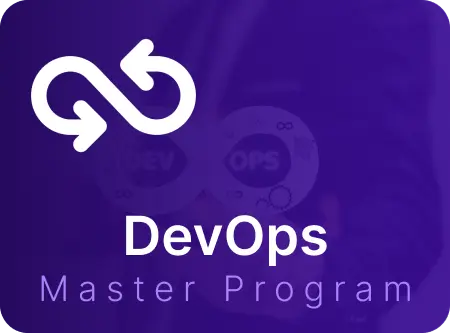
DevOps Master
Program
- 120+ Hrs
- Who needs to Enroll (Perfect Curriculum for Freshers & Less than 3 Years Experienced in IT)
- 3.5 Months Duration
- Basic to Advanced
- 5 LIVE Projects | 100% Career Centered Curriculum
- Self-paced learning Video Option Available
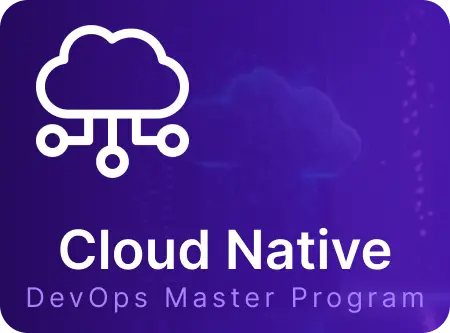
Advanced Cloud
Native DevOps Master Program
- 230+ Hrs
- Who needs to Enroll ( The best Curriculum for Above 4+ IT Experienced Professionals )
- 3.5 Months Duration
- Pre-Requisites to Highly Advanced futuristic
- 5 LIVE Projects | 100% Career Centered Curriculum
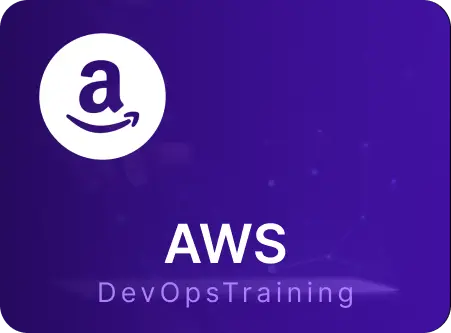
AWS DevOps
Training
- 120+ Hrs
- Covers the complete package of tools needed to be a DevOps engineer for freshers and experienced IT professionals.
- 3 Months Program from Pre-Requisite to Advanced level
- 5 LIVE Projects | 100% Career Centered Curriculum
- Self-paced learning Video Option Available
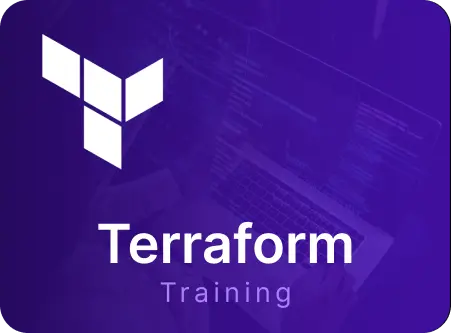
Terraform
Training
- 30+ Hrs
- Anyone who looking to enhance their knowledge of infrastructure tools particularly on terraform
- 2 Week Training + 1 Week project
- Cover all topics including some AWS advanced concepts
- Self-paced learning Video Option Available
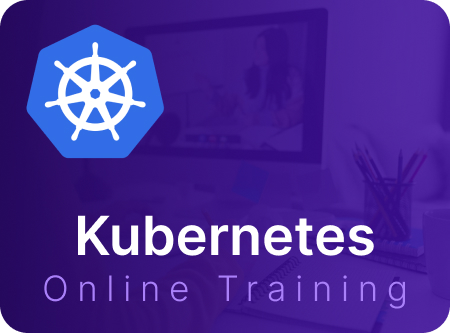
Kubernetes Online
Training
- 30+ Hrs
- Covers the advanced topics on Deployment, Cluster, Containerisation, etc.
- 2 Weeks Training + 1 Week Live Project
- A pre-requisite module will be delivered to learn Kubernetes and Docker
- Self-paced learning Video Option Available
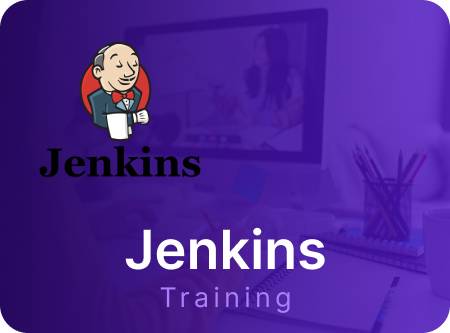
Jenkins
Training
- 30+ Hrs
- Covers complete CICD pipeline concepts including GIT & GIT hub
- 2 Weeks Training + 1 Week Project
- Include a Pre-Requisite module for a better understanding of Linux Basics and Cloud concepts to learn Jenkins
- Self-paced learning Video Option Available
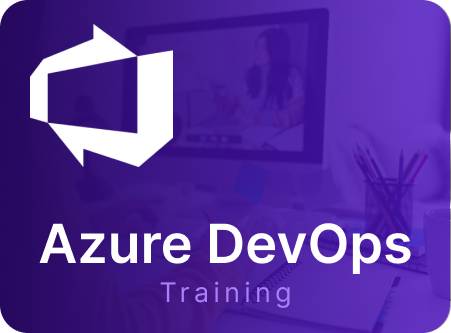
Azure DevOps
Training
- 30+ Hrs
- Anyone who looking to enhance their skill on CICD of Azure DevOps
- 2 Weeks Training + 1 Week Advanced Project
- Pre-requisite module will be provided to understand the basics of Kubernetes and Containerisation
- Self-paced learning Video Option Available
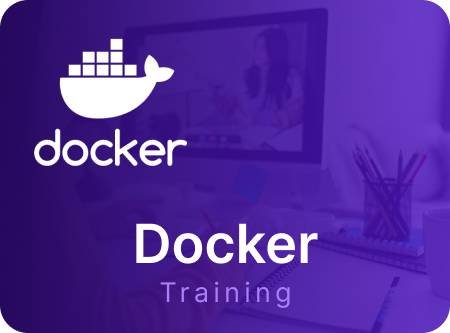
Docker Plus Ansible Training
- 30+ Hrs
- Covers complete Advanced topics on Docker including configuration management tool Ansible
- 2 Weeks training + 2 Projects
- Include Prerequisites of Linux & Cloud topics for better understanding
- Self-paced learning Video Option Available